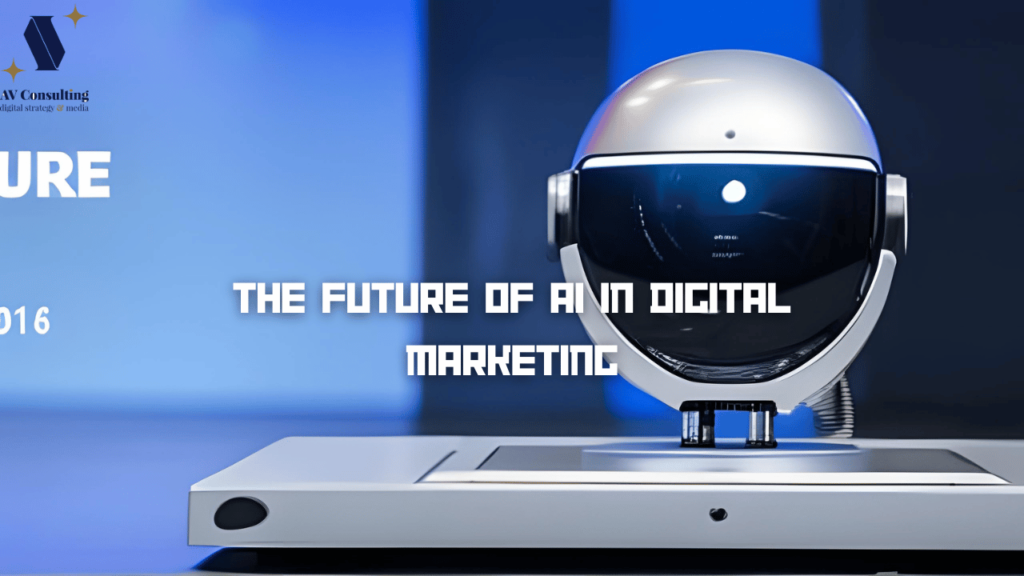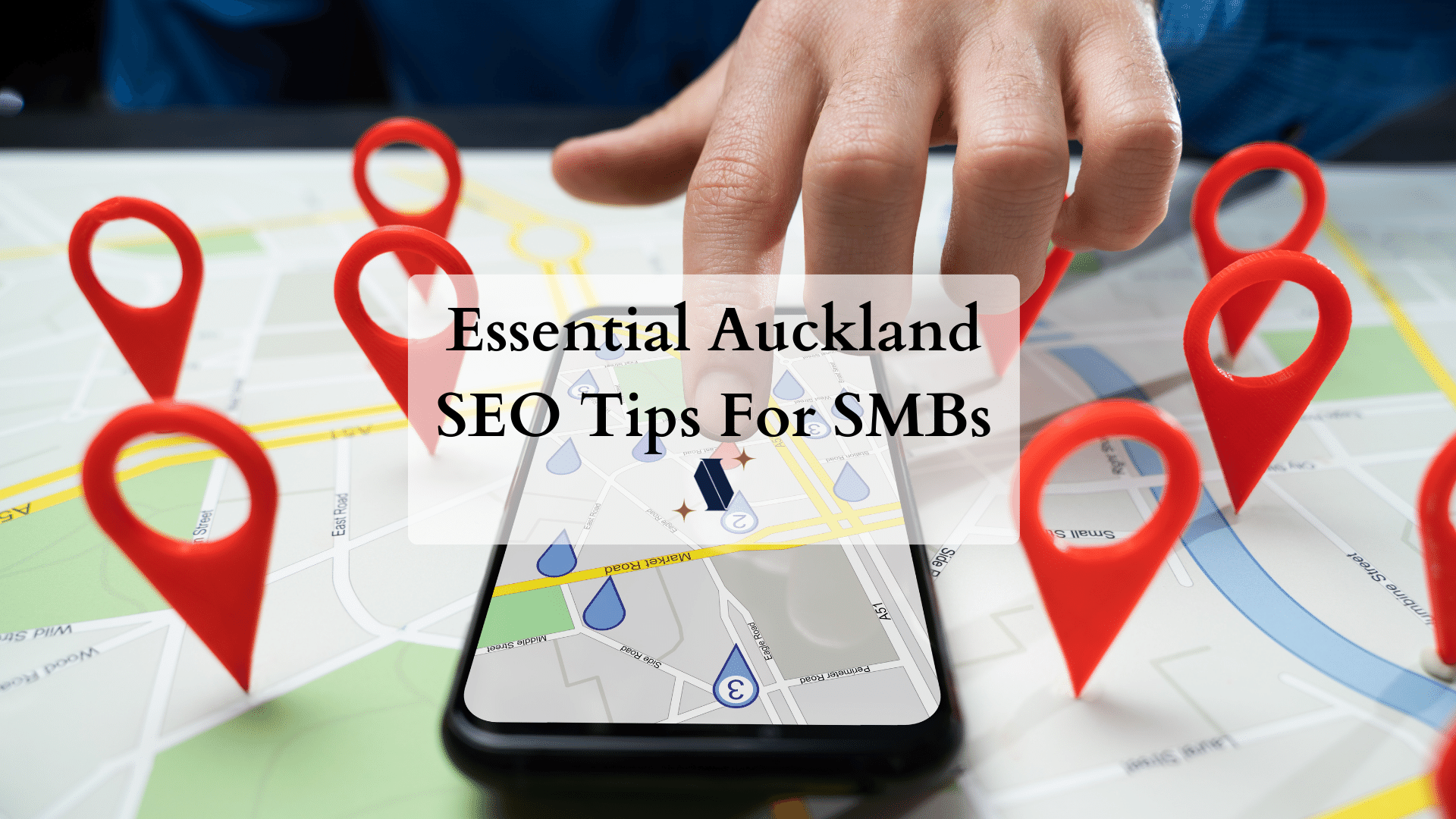Introduction
In the rapidly evolving digital landscape, the integration of artificial intelligence (AI) in digital marketing automation has become a game-changer. This article aims to explore the future of marketing, focusing specifically on the role of AI in digital marketing, particularly for small to medium-sized businesses (SMBs), marketing managers, and digital marketers in New Zealand. We will delve into the benefits and implications of AI-driven marketing automation, providing insights, real-world examples, and predictions to demonstrate the growing importance of AI in the marketing landscape.

The Growing Importance of Marketing Automation for Small to Medium-Sized Businesses
Marketing automation has become a pivotal tool for businesses of all sizes. For small to medium-sized businesses, especially, the benefits are substantial. It involves the use of software tools and technologies to automate repetitive marketing tasks, streamline marketing workflows, and measure the performance of marketing campaigns. It covers a broad spectrum of activities, including email marketing, social media posting, customer segmentation, lead generation, and analytics.
AI is taking marketing automation to new heights, enhancing it in several ways, from generating personalised content to predicting customer behaviour. For instance, AI image generators like DALL.E can create custom images, other AI tools can create logos, and even design website layouts and landing pages. This can help businesses create more engaging and personalised marketing content, further enhancing their marketing efforts.
The Role of AI in Streamlining Marketing Processes: A Deeper Dive
AI is transforming the marketing landscape, offering innovative solutions to streamline various marketing processes and enabling businesses to develop affective AI-driven marketing strategies. From content creation to influencer marketing, AI is enabling businesses to optimise their operations and generate a higher return on investment.
Another area where AI is making a significant impact is influencer marketing. AI tools can be used to ensure that an influencer is a good fit for a partnership. By analysing an influencer’s age, interests, niche, location, and even previous brand partnerships, AI can help businesses target and match brands to influencers effectively. This saves time and increases the chances of a successful partnership.
However, as with any rapidly developing technology, there are challenges and grey areas to address when it comes to the adoption of AI. For instance, there are concerns about the potential for misinformation in AI-generated content. Therefore, it’s important for businesses to have human oversight of their AI-powered marketing campaigns to ensure brand safety and quality control.
| AI in Marketing | Impact Areas |
|---|---|
| Content creation | AI enables businesses to optimize their operations and generate a higher return on investment. |
| Influencer marketing | AI tools help match brands to influencers effectively, saving time and increasing the chances of a successful partnership. |
| Challenges in adoption | Concerns exist about misinformation in AI-generated content, so businesses should ensure human oversight for brand safety and quality control. |
The Transformative Power of AI in Digital Marketing
The transformative power of AI in digital marketing is not just a future prediction, but a present reality. As AI continues to evolve, it’s reshaping the landscape of digital marketing, making it more efficient, personalised, and data-driven.
Email marketing is another area being transformed by AI. AI-powered email marketing tools can analyse customer data to create personalised email campaigns that resonate with each recipient. These tools can automate the process of segmenting customers, crafting personalised messages, and scheduling emails, making email marketing more efficient and effective. It can also increase sales for e-commerce businesses, by increasing cart revenue with targeted automated e-mails.
The Delicate Balance Between Automation and Authenticity
As AI continues to evolve, it’s becoming an increasingly popular tool for handling the more mundane tasks in digital marketing, freeing up valuable time for businesses to focus on more strategic initiatives. However, with authenticity being a key factor in building trust with consumers, finding a middle ground between authenticity and automation is a key factor in running successful AI-driven campaigns.
Consequently, while AI can generate content based on keywords and data, it’s essential for businesses to ensure that this content accurately represents their brand image and mission. Over-reliance on AI could potentially make consumers wary, even as advancements in AI technology make it increasingly difficult to distinguish between automated and original content.
While AI can create engaging visuals and content, it’s still a work in progress when it comes to delivering content that truly resonates with audiences on an emotional level. Moreover, there’s the potential for misinformation in AI-generated content, which could negatively impact a brand’s reputation.
AI is undoubtedly creating a new era for digital marketing, offering greater efficiency and opportunities for personalisation. That said, it’s essential for businesses to strike a balance between leveraging AI for automation and maintaining their unique brand identity and authenticity. While AI offers exciting possibilities for influencer marketing, businesses must navigate the challenges and potential pitfalls with care.
AI in Customer Segmentation and Personalisation
Artificial Intelligence is revolutionising the way marketers approach customer segmentation and personalisation. In the past, marketers relied on broad demographic data and educated guesses to segment their audience. But with AI, it’s now possible to analyse vast amounts of data and identify patterns that humans might miss. This allows for more precise segmentation, enabling marketers to target specific groups with tailored messages.
AI can also enhance personalisation. By analysing customer behaviour, AI can predict what a customer wants or needs, even before they know it themselves. This level of personalisation can significantly improve customer engagement and conversion rates. For instance, AI can analyse a customer’s browsing history and suggest products they might be interested in, creating a personalised shopping experience.
Additionally, AI can automate the process of A/B testing, which is necessary for optimising marketing strategies. Instead of manually testing different versions of a campaign, AI can quickly test multiple variations and determine which one is the most effective. This not only saves time but also leads to more accurate results.
Emerging Trends and Predictions for AI in Digital Marketing
As we look to the future, the role of AI and machine learning in digital marketing is set to evolve even further. The integration of AI and machine learning technologies into marketing strategies is becoming the norm. This is particularly true in New Zealand, where businesses are shaping New Zealand digital marketing trends by increasingly leveraging AI to stay competitive in the digital landscape.
One of the key trends we’re seeing is the use of AI for predictive analytics. This involves using historical data to predict future outcomes. For example, AI can analyse past customer behaviour to predict future purchasing decisions. This allows businesses to tailor their marketing efforts to individual customers, improving the effectiveness of their campaigns and increasing customer engagement.
In content creation, AI algorithms can now generate high-quality content that is both engaging and SEO-friendly. This not only saves time but also ensures that the content is optimised for search engines, increasing its visibility and reach.
Put simply, the future of digital marketing lies in the integration of AI and machine learning technologies. As AI continues to evolve, it’s set to revolutionise the marketing landscape, offering greater efficiency, personalisation, and data-driven insights. With that in mind, as stated before. Navigating the challenges and potential pitfalls of AI adoption with care is crucial for businesses to ensure that they maintain their unique brand identity and authenticity as they leverage AI for automation.
Real-World Applications of AI in Marketing
Papatoetoe High School: The school’s principal, Vaughan Couillault, has found immense value in the AI tool, Chat GPT 4. It’s been instrumental in drafting the school newsletter, creating interview questions for a prospective receptionist, and even formulating a new school policy. Chat GPT has not only saved significant time but also enhanced the efficiency of his work.
TQ Solutions: This Australian-based human resources and recruitment consulting firm, with a strong client base in New Zealand, has been utilising Chat GPT to craft job descriptions. The AI tool is capable of generating key skills and requirements for various roles, which are then used to populate a position description or an advert for a role.
Marketing Minds: This award-winning New Zealand marketing agency has been harnessing the power of AI tools like copy.ai and ChatGPT to augment human intelligence in marketing and advertising. Anne Casey, the agency’s CEO, believes that these tools can help businesses expand their message across more platforms and allocate their resources more efficiently.
However, it’s important to remember that while these AI tools offer significant benefits, they should be viewed as a supplement to human intelligence, not a replacement. They can help eliminate the repetitiveness of marketing tasks and allow businesses to do more with their time, but the human element remains vital for strategy and planning.
The Role of AI in the Evolution of Digital Marketing
The future of digital marketing is not just about the adoption of new technologies, but also about the creative and innovative ways these technologies are being used to revolutionise the marketing landscape. One of the most transformative technologies in this regard is AI. AI is not just a tool for automation and efficiency, but a powerful ally in the creative process, opening up new avenues for personalisation, engagement, and customer experience.
AI is already playing a significant role in the evolution of digital marketing. According to a Forbes article by Ismael El Qudsi, the adoption of AI tools more than doubled from 2017 to 2022, and companies continue to look for opportunities to use them to optimise operations and get a better grasp on analytics. AI is being used to process massive amounts of data, identify trends and patterns, and provide insights from the collected information.
In conclusion, AI is playing a pivotal role in the future of digital marketing. By automating various marketing processes, enhancing marketing personalisation, and driving emerging marketing trends, AI is helping businesses to improve their marketing efficiency, increase customer engagement, and drive business growth. As AI continues to evolve, its impact on digital marketing is likely to become even more significant.
If you need help implementing this or with any other content, marketing, branding, selling, pitching or closing task, visit AV Consulting.
Sources:
Scoop.co.nz






